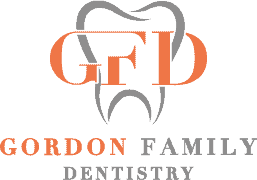How long a dental crown lasts is an important question for those who have had their teeth restored with this common restorative treatment. With the proper care and maintenance, a dental crown can last for many years.
However, there are a variety of factors that can play a role in the longevity of this restoration.
For those looking for guidance on how to maximise the lifespan of their dental crown, this article will offer helpful tips and insight.
Understanding Dental Crowns
Dental crowns are designed to replace the outer surface of a damaged tooth, restoring both the function and appearance of the tooth. They are custom-made to fit perfectly over the damaged tooth, providing a protective layer around it. Proper care and maintenance of a dental crown can help to ensure its longevity and optimal performance.
The average lifespan of a dental crown can vary depending on the type of crown, from metal crowns to porcelain crowns, as well as whether it is a temporary or a permanent crown. Good oral hygiene and regular dental care are essential for the longevity of a dental crown. A patient should brush and floss twice a day, as well as visit the dentist for regular check-ups. Avoiding harmful habits like smoking and excessive alcohol consumption can also help to extend the life of the crown. Additionally, any dental work to the crowned tooth should be discussed with the dentist to ensure that the crown is not damaged during the procedure.
With proper care and maintenance, a dental crown can last for many years. However, it is important to note that all crowns will eventually need to be replaced due to wear and tear. By following the proper oral hygiene habits and visiting the dentist regularly, a patient can help to ensure that their crown lasts for as long as possible.
The Average Lifespan of a Dental Crown
The average lifespan of a dental crown can vary, depending on the materials used and other factors. Generally speaking, ceramic and zirconia crowns can last between 10 and 15 years, while gold crowns can last the longest, up to 20 years or more. The longevity of the crown is also related to the condition of the natural teeth, oral health habits, and regular dental visits.
When a crown is placed, it covers the entire tooth, from the gum line to the top of the original tooth. The type of crown used for dental restoration will depend on the decayed teeth’ condition, the tooth crown’s location, and the patient’s preference. Ceramic and zirconia crowns are the most common and are made from porcelain, while gold crowns are made from metal alloys and are usually used for partial crowns.
In some cases, a dental bridge may be recommended instead of a crown. A bridge is created by joining a dental implant to one or more natural teeth and requires a root canal for the supporting teeth. If the crown is damaged or worn down, it may need to be replaced. Proper dental care and regular dental visits are essential for the longevity of any dental restoration, as gum disease and tooth decay can lead to crown replacement.
Factors That May Affect the Lifespan of a Crown
Factors such as the materials used, the condition of the natural teeth, oral health habits, and regular dental visits can all influence the lifespan of a dental crown. Proper diagnosis of the underlying issue, the type of material used, and the patient’s overall oral hygiene habits are key. Weak teeth, broken teeth, and poor periodontal health can all reduce the life of a crown. Additionally, sticky foods, which can cause a crown to become loose, should be avoided.
The types of crowns available vary in longevity. For example, crowns made of composite resin last for about 5-8 years, while porcelain crowns can last 10-15 years. Ultimately, the lifespan of a dental crown depends on the patient’s dedication to proper oral hygiene habits, regular visits to the dentist, and avoidance of sticky foods that could cause the crown to become loose.
Adequate Oral Hygiene
Adopting adequate oral hygiene habits is an essential component in maintaining the longevity of a dental crown. The materials used to craft a dental crown, such as gold alloy, porcelain, or even a combination of the two, can last for many years with proper care. However, extra care must be taken to prevent bacteria from settling around the crown since this can cause deterioration of the dental crown material.
Experienced dentists typically recommend dental hygiene practices such as regular tooth brushing, flossing, and the use of mouthwash to keep the crown clean. Additionally, regular dental check-ups are essential in order to detect any issues with the crown, as well as any changes to the tooth root, which may require root canal therapy or another treatment.
Regular Check-ups and Cleanings
Frequent dental check-ups and cleanings are recommended for optimal maintenance of a dental crown. During a routine office visit, a dentist can check to make sure the crown is still in good shape and that it is not causing any damage to other teeth or gum tissue. Dentists need to provide their patients with a night guard to wear at night to protect the crown and ensure its longevity. Proper installation of a dental crown is also important. Only an experienced dental professional should handle the installation process.
For successful treatment, composite material or composite resin crowns are recommended. With proper care and maintenance, these crowns can help keep teeth healthy and increase the lifespan of the crown. Here is a 4 item numeric list to paint a picture for the audience:
- Proper installation of the crown is essential.
- Wear a night guard to protect the crown and ensure its longevity.
- Composite material or composite resin crowns are recommended.
- Regular check-ups and cleanings are necessary for optimal maintenance.
Regular check-ups and cleanings can help ensure that a dental crown remains healthy and in place for the amount of time it was intended to last. With the help of an experienced dental professional, proper maintenance and treatment plans can be put into place to ensure the successful treatment of a dental crown procedure.
Avoiding Certain Foods and Habits
Avoiding certain foods and habits can help preserve the dental crown’s integrity. After a patient has undergone dental crown placement, either a permanent or temporary crown, they should be aware that certain activities can lead to damage to the crown. Patient home care is a key factor in how long a crown will last, as bad habits can lead to a variety of reasons why the crown may become damaged.
For example, teeth grinding at night or drinking cold liquids can cause fractures in the crown, while a metal allergy can result in a reaction to the silver tooth caps. A porcelain exterior can also chip if a patient chews on hard objects.
Therefore, it is important for a patient to be aware of the habits that can result in a shortened life of the crown so that they can take action to extend the life of the crown.
Replacing a Dental Crown
Replacement of a dental crown may be necessary if damage occurs due to improper activities or habits. Dental professionals are the best source to determine if a crown needs to be replaced. If the crown is hurt but still in place, the dentist can evaluate how long the crown will last and what materials are needed for a successful replacement.
The process of crown placement is an important part of comprehensive care. A custom-made crown is often needed to ensure that the crown is strong and fits properly. The pricing of a new crown will depend on the materials used and the complexity of the process. However, replacing a crown with proper care and affordable payment plans is a manageable expense.
Ultimately, individuals should consult a dental professional to ensure that the crown is replaced correctly and that the crown lasts as long as possible.
Key Takeaways
The longevity of a dental crown is largely determined by the care taken to maintain its structure and integrity. Regular check-ups and cleanings, along with adequate oral hygiene and the avoidance of certain foods and habits, may help extend a dental crown’s lifespan.
Ultimately, proper care and maintenance of a dental crown can help to ensure its long-term success.
At Gordon Family Dentistry in Gordon, NSW, we understand the importance of proper care and maintenance of dental crowns. We provide comprehensive dental care to ensure your crowns are in optimal condition and able to last for many years to come. Visit us today for a consultation and to learn more about how we can help keep your smile looking its best.

